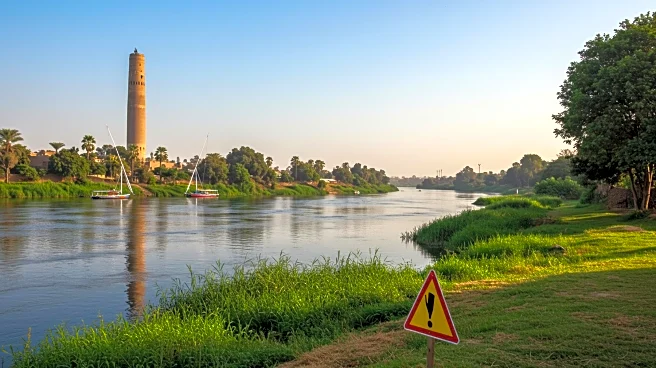What's Happening?
Egypt has issued a stern warning to Ethiopia regarding the Grand Ethiopian Renaissance Dam (GERD) on the Nile River. Egyptian President Abdel Fattah El-Sisi emphasized that Egypt will not tolerate any threats to its water security and is prepared to take measures under international law if necessary. The warning comes amid stalled negotiations over the dam, which Egypt fears could significantly reduce its share of Nile waters. The situation has been further complicated by comments from President Trump, who appeared to support Egypt's position, causing diplomatic tensions with Ethiopia. The GERD, a $4 billion project, is crucial for Ethiopia's energy and industrial goals, but it has been a point of contention with downstream countries like Egypt and Sudan.
Why It's Important?
The dispute over the GERD is a significant geopolitical issue in Africa, with potential implications for regional stability. Egypt relies heavily on the Nile for its water needs, and any reduction in water flow could have severe consequences for its agriculture and population. Ethiopia, on the other hand, views the dam as essential for its development and energy independence. The involvement of international figures like President Trump adds a layer of complexity, potentially influencing diplomatic relations and negotiations. The situation underscores the challenges of transboundary water management and the need for cooperative solutions to avoid conflict.
What's Next?
The next steps involve continued diplomatic efforts to reach a resolution. Egypt may seek further international support to pressure Ethiopia into a binding agreement. Ethiopia, meanwhile, is likely to continue its efforts to complete and operate the dam. The involvement of international mediators or organizations could be pivotal in facilitating dialogue and preventing escalation. The outcome of these negotiations will have lasting impacts on the region's water security and political dynamics.









